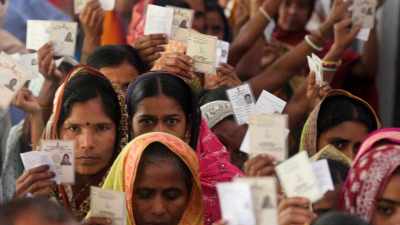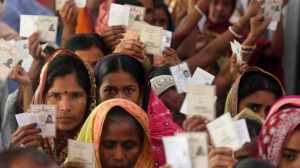Delhi High Court allows St Stephen’s College to admit minority students in PG courses through interview, CUET
The order noted DU's submission that so long as the petitioner college restricts itself to holding interviews for PG admissions only to students of the Christian minority community, the varsity would not have any objection.
 The Delhi High Court passed the order while disposing of a 2022 petition moved by St Stephen's College. (File)
The Delhi High Court passed the order while disposing of a 2022 petition moved by St Stephen's College. (File)The Delhi High Court Monday said that St Stephen’s College is “permitted to subject minority students”, seeking admission to Post Graduate (PG) courses in the college, to interview and to allocate 15% marks to interview and 85% to the Common University Entrance Test (CUET) score of the students.
The HC passed the order while disposing of a 2022 petition moved by St Stephen’s College, which had claimed that the Delhi University is allotting a “disproportionately small number of seats” to it for admission to PG courses affiliated to the varsity.
A single-judge bench of Justice C Hari Shankar, in its order, further said, “Non-minority students would, however, not be subjected to any interview for admission to PG courses in the petitioner college. Their admission would solely be on the basis of their CUET score. The DU would ensure, henceforth, that allocation/allotment of PG seats in the petitioner-college is not disproportionate.”
The HC also said that DU may consider, while deciding the number of PG seats to be allotted, the “infrastructure available” with the college concerned, and the number of Undergraduate students admitted there in that course.
Justice Shankar, however, said that this is merely a suggestion, adding the DU is at liberty to “adopt any objective criterion as it deems fit”.
“In order to avoid further heartburn on this score, the DU is directed to consider framing of an appropriate policy or guidelines to govern allocation/allotment of seats in PG courses amongst various colleges,” the HC said. Justice Shankar noted that not having a guideline governing such allocation is “not an acceptable situation” and added that the “grant of uncanalized and absolute discretion is an invitation to arbitrariness”.
The petitioner college had alleged that there are no objective guidelines, whatsoever, governing the allotment of PG seats, as a result of which DU enjoys “absolute and hegemonic control over the decision” of the number of PG seats to be allocated to any particular college affiliated to it. The college alleged that DU had been allotting very few PG seats to it “with no due justification”.
Meanwhile, DU said that it takes a “serious exception” to the petitioner college subjecting the students, who had already been shortlisted by the DU for admission to PG courses, to “an additional round of interview and, on that basis, refusing to admit some of the students”. DU said that the students who could not clear the interview round were “left in the lurch”. It said this was the main factor which provoked DU to reduce the number of seats allocated to the petitioner college.
Justice Shankar noted that a division bench of the HC, in 2022, had held that following the Supreme Court’s decision, St Stephen’s College was “entitled to continue to hold an interview”, and “allocate 15% marks to the interview with 85% marks for CUET score, in the case of minority students to be admitted by it’”.
Justice Shankar thereafter noted that another division bench of the HC had in July 2023 passed an interim order permitting St Stephen’s to adopt “85% weightage” for CUET score and “15% for interviews for admission of Christian minority candidates to undergraduate programmes” for the Academic Year 2023-24.
The order noted DU’s submission that so long as the petitioner college restricts itself to holding interviews for PG admissions only to students of the Christian minority community, the varsity would not have any objection.












